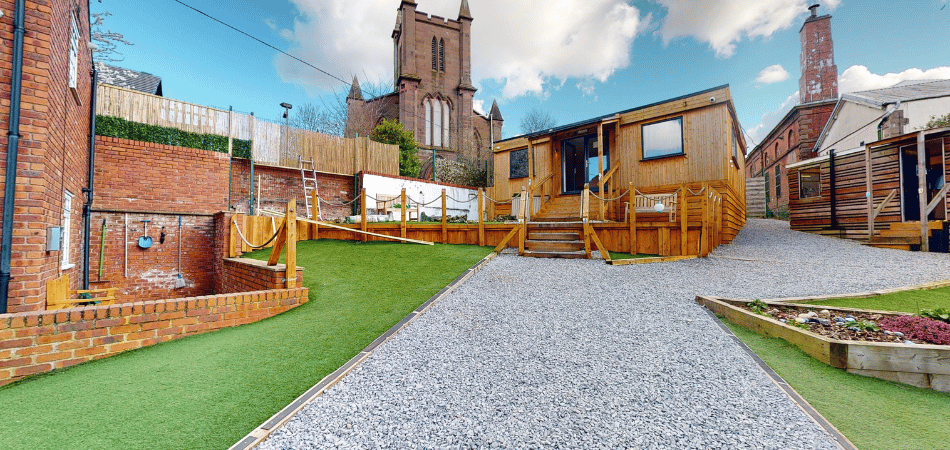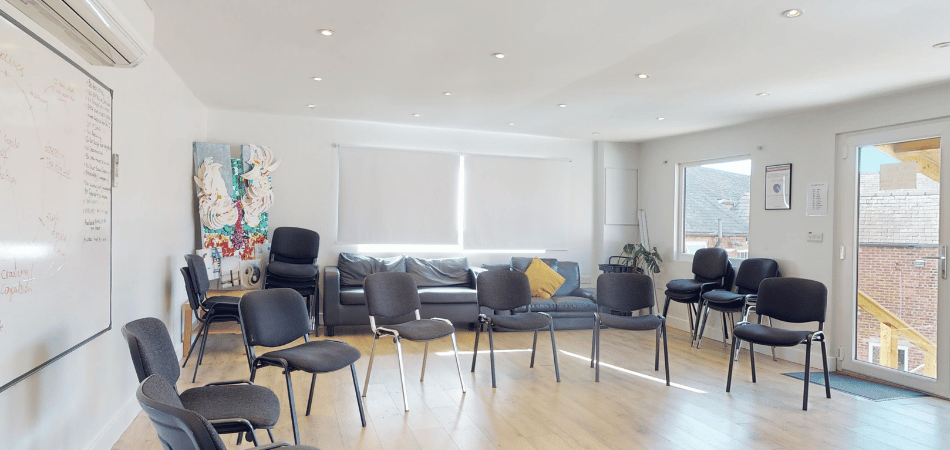Addiction issues are often evaluated and assessed purely in terms of data and statistics. Governments, health authorities and private rehab organisations like UKAT study everything from trends in substance abuse to the number of fatalities. However, it can be easy to forget that behind each statistic is a real-life person whose life has been impacted in ways that statistics can never fully convey. That is why hearing the first-hand accounts of people like David is so important for bringing us back to the core of what recovery truly means.
David’s success story is a source of huge inspiration for those needing addiction help and those working in the recovery industry. However, it also highlights some key areas where local authorities must make big decisions about the best way to support those in need.
David’s story
David McCormack’s journey to drug addiction began with casual, recreational use. Like tens of thousands of people up and down the country, David was using drugs every Friday and Saturday night, never thinking that this would take him down, as he describes his descent into addiction, “other roads”.
Before long, David was using drugs seven days a week, with the escalation a typical example of how quickly recreational use can spiral into dependency. As David explains, he was now locked in a cycle from which there seemed only three possible escapes:
“You end up in prison, get killed or kill yourself with the amount of drugs you are doing.”
A second chance
The availability of drug addiction treatment has long been both a local and national issue in the UK. The lack of funding, overstretched resources and ever-growing number of people seeking treatment has left NHS rehab services stretched to breaking point.
In the North West of England where Runcorn is located, this lack of accessible treatment has contributed to the nearly three people per day who die as a result of drugs locally. David, however, was one of the lucky ones and received funding for six months’ private drug rehab at UKAT’s Oasis Runcorn Centre, an opportunity which he credits with saving his life:
“I would be dead. That’s where my life was going. I was using drugs with the hope of dying.”
A lesson for local authorities
Faith Noone, Centre Manager at Oasis Runcorn, believes that David’s success story should be a lesson for local authorities about the effectiveness of residential rehab. The vast majority of government funding for addiction recovery goes on outpatient community detox, but Ms Noone believes this a “false economy”, accusing local authorities of “burying their heads in the sand” when it comes to the true scale of the challenge.
The main reason local authorities favour funding outpatient detox and rehab services is cost. Outpatient treatment does not require accommodation, overnight stays, extensive facility resources or the same staffing level as residential care. While this makes it a more budget-friendly option, it often comes at the expense of the comprehensive support and structured environment that residential care provides.
Ms Noone believes that the number of drug-related deaths across the North West and the rest of the UK could be “reduced significantly” if local councils prioritised their budgets for residential drug rehab instead.
The benefits of residential care
Residential drug rehab offers several distinct advantages that make it the most effective route to recovery. These include:
Medical drug detox
Detox is a crucial part of drug addiction treatment as it clears all the drugs from the system and breaks physical dependence. However, drug detox can lead to severe withdrawal symptoms, which can be uncomfortable, distressing and potentially even life-threatening. Residential rehab centres like Oasis Runcorn can provide medical drug detox where each of those going through the detox process is monitored and supported 24/7 to keep them safe and comfortable.
An intensive, structured routine
The structure and routine of residential drug rehab, often missing in the lives of those struggling with addiction, is also essential for recovery. Residents have a daily schedule that includes therapy sessions, group meetings and activities designed to foster recovery and personal growth.
This consistent routine helps build healthy habits and coping strategies that are vital for maintaining long-term sobriety long after leaving rehab.
A safe environment
Residential rehab like that at Oasis Runcorn provides a secure setting, free from the triggers and stresses of everyday life. This allows individuals like David to focus solely on their recovery without the distractions and potential temptations in their usual environments.
It also provides them with constant access to medical and therapeutic support, which is crucial for dealing with difficult withdrawal symptoms, extreme cravings or the intricacies of co-occurring mental health disorders.
Higher levels of care
Residential rehab facilities also tend to offer a higher level of care and a more intensive treatment programme than outpatient NHS rehab services can provide. This is not a criticism of the incredible staff working for the NHS; it is just a reflection of the limited resources and huge strain that public addiction treatment services are under.
Residential rehab centres have a multidisciplinary team of professionals, including doctors, nurses, therapists, and support staff, all of whom are dedicated to comprehensive care. This team works collaboratively to create personalised treatment plans that address every aspect of addiction.
Peer support and connection
Peer support is another significant advantage of residential care. Living alongside others who are facing similar challenges creates a sense of community and mutual support. This environment fosters deep connections and allows for shared experiences, with residents learning from each other’s experiences, sharing coping strategies and building a supportive network that can continue to be a resource post-treatment.
Relapse prevention
Lastly, residential care often includes a focus on relapse prevention and aftercare planning. These programmes equip individuals with the tools and strategies they need to maintain their sobriety after leaving the facility. For example, Oasis Runcorn provides free group therapy every week for a year to make the challenging transition from rehab to everyday life more smooth.
Final thoughts
If any further proof is needed of the effectiveness of residential rehab and the opportunity it provides for a fresh start, we need only look at David now. Five years after his successful stay at Oasis Runcorn, he has just completed his second degree. Even better than that, he can raise his daughter, something he said would never have been possible without the opportunity given to him to get the help he needed.
Crucially, David explains that while that kind of opportunity needs to be given to as many people as possible, recovery also takes commitment and dedication. Looking back on his time at Oasis Runcorn, he has this message for everyone who is beginning their recovery journey:
“(Drug rehab) gave me the building blocks but I believe that you also need to look at the work you are putting in yourself.”
If you are ready to put in that work and commit to a life of change and growth, contact UKAT today and let us help you write your own success story.







